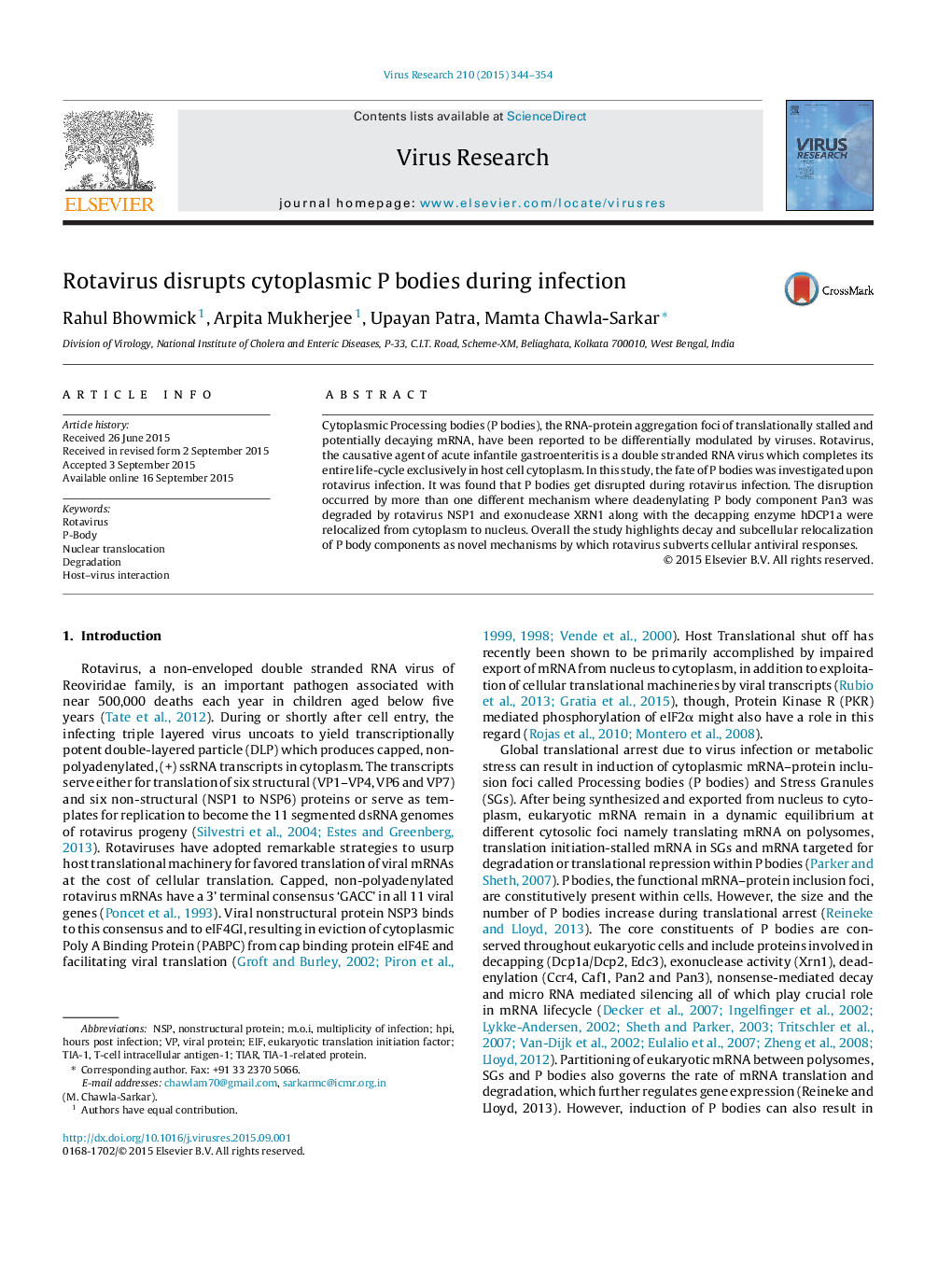| Article ID | Journal | Published Year | Pages | File Type |
|---|---|---|---|---|
| 3428078 | Virus Research | 2015 | 11 Pages |
•Rotavirus infection disrupts formation of P bodies which are potent sensors linking stress with innate immunity.•P body protein Pan3 is degraded by rotaviral NSP1 dependent mechanism.•P body proteins XRN1 and hDCP1a undergo nuclear relocalization during rotavirus infection.•Both degradation and relocalization of P body components have impact on P body disruption.
Cytoplasmic Processing bodies (P bodies), the RNA-protein aggregation foci of translationally stalled and potentially decaying mRNA, have been reported to be differentially modulated by viruses. Rotavirus, the causative agent of acute infantile gastroenteritis is a double stranded RNA virus which completes its entire life-cycle exclusively in host cell cytoplasm. In this study, the fate of P bodies was investigated upon rotavirus infection. It was found that P bodies get disrupted during rotavirus infection. The disruption occurred by more than one different mechanism where deadenylating P body component Pan3 was degraded by rotavirus NSP1 and exonuclease XRN1 along with the decapping enzyme hDCP1a were relocalized from cytoplasm to nucleus. Overall the study highlights decay and subcellular relocalization of P body components as novel mechanisms by which rotavirus subverts cellular antiviral responses.
